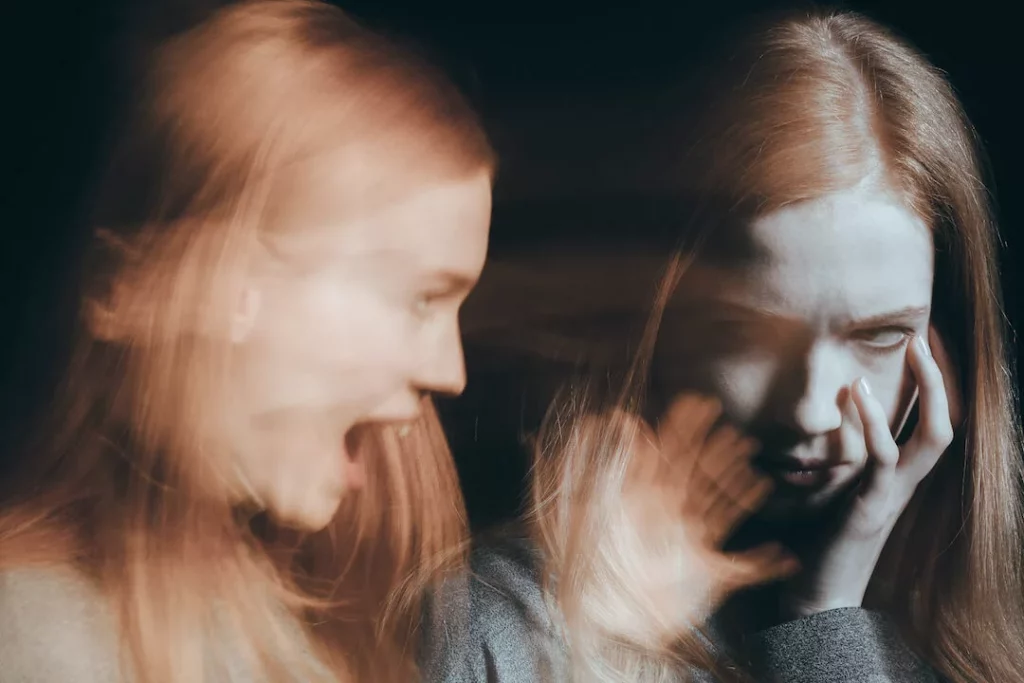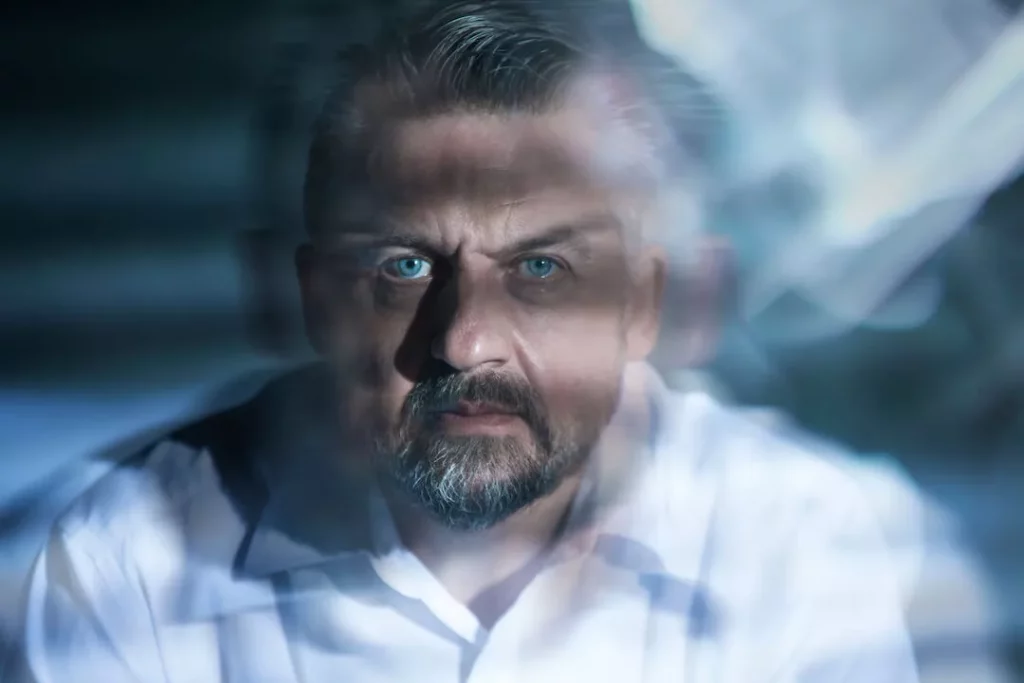We will talk in this article about list of rare mental disorders, at the same time, you will first learn everything you need to know about the most popular mental disorders types, symptoms, causes, and treatments.
In the United States, mental disorders are common. An estimated 26.2% of adults in the U.S. live with a mental illness, which equates to about 1 in 4 adults.
What is Mental Disorder?
A mental disorder also called a mental illness or psychiatric disorder, is a behavioral or mental pattern that causes significant distress or impairment of personal functioning.
Such features may be persistent, relapsing and remitting, or occur as a single episode. Many disorders have been described, with signs and symptoms that vary widely between specific disorders.

Types of Mental Disorders
There are many different types of mental disorders, and each one has its own set of symptoms.
7 Top Types of Mental Disorders
1. Anxiety Disorders
People with anxiety disorders experience excessive fear, worry, and uneasiness.
2. Depressive Disorders
People with depressive disorders go through persistent sadness, emptiness, or irritability.
3. Bipolar Disorder
People with bipolar disorder encounter extreme changes in mood, from highs (or mania) to lows (or depression).
4. Eating Disorders
People with eating disorders have a distorted body image and an unhealthy relationship with food.
5. Obsessive-Compulsive Disorder (OCD)
People with OCD have persistent, intrusive thoughts (obsessions) and engage in repetitive behaviors (compulsions) to try to control their thoughts.
6. Attention-Deficit / Hyperactivity Disorder (ADHD)
People with ADHD have difficulty paying attention and controlling impulsive behaviors.
7. Posttraumatic Stress Disorder (PTSD)
People with PTSD experience intense fear, anxiety, and helplessness after a traumatic event.

Symptoms of Mental Disorders
The symptoms of mental disorders can vary greatly depending on the specific disorder.
Some common symptoms include:
- Feeling sad or down
- Feeling anxious or tense
- Feeling angry, irritable, or cranky
- Having low energy or trouble sleeping
- Having difficulty concentrating or making decisions
- Feeling disconnected from others
- Engaging in risky or destructive behaviors
Causes of Mental Disorders
The causes of mental disorders are complex. They may be caused by a combination of genetic, biological, psychological, and social factors.
1. Genetic Factors
Mental disorders can run in families, suggesting that they may be caused by an inherited vulnerability to certain mental illnesses.
2. Biological Factors
Certain mental disorders may be caused by abnormalities in the brain or other parts of the nervous system.
3. Psychological Factors
Mental disorders may be caused by a combination of psychological factors, such as:
- Stressful life circumstances, such as exposure to trauma or loss
- Negative thinking patterns, such as self-blame or perfectionism
- Poor coping skills
4. Social Factors
Mental disorders may also be caused by social factors, such as:
- Isolation and loneliness
- Poverty or other financial stressors
- Discrimination or social exclusion

Treatments for Mental Disorders
Treatment for mental disorders can vary, depending on the severity and type of disorder. Treatment may involve:
1. Psychotherapy
Psychotherapy, also called talk therapy, is a type of counseling that can help people with mental disorders.
2. Medication
People with mental disorders may also benefit from medication. Medication can be used to treat the symptoms of mental disorders, such as anxiety or depression.
3. Hospitalization
In some cases, people with mental disorders may need to be hospitalized. This is usually done when someone is a danger to themselves or others.
4. Self-care
People with mental disorders can also benefit from self-care. This may involve exercise, relaxation techniques, and a healthy diet.

If you or someone you know is experiencing symptoms of a mental disorder, it’s important to seek professional help.
Early intervention and treatment can make a big difference in managing the symptoms of mental disorders and improving quality of life.
Now we have learned about general mental disorders, let’s learn about rare mental disorders.
List of Rare Mental Disorders
Here is the list of 10 top scary rare mental disorders that happen to few people around the world:
1. Mirror Touch Synesthesia
Mirror touch synesthesia is a rare condition in which a person feels the sensation of touch when they see someone else being touched. For example, if a person with mirror-touch synesthesia sees someone being punched, they may feel the sensation of being punched themselves.
2. Capgras Delusion
The Capgras delusion is a rare condition in which a person believes that a loved one has been replaced by an impostor. This may be a family member, friend, or even a pet.
3. Cotard Delusion
The Cotard delusion is a rare condition in which a person believes that they are dead, or that parts of their body are missing. People with Cotard delusion may also believe that they are in Hell, or that they have sinned and are going to be punished.
4. Foerster Symbol agraphia
Foerster symbol agraphia is a rare condition that causes people to have difficulty writing words. People with Foerster symbol agraphia may be able to write individual letters, but they have difficulty putting the letters together to form words.
5. Ganser Syndrome
Ganser syndrome is a rare condition that causes people to give false or approximate answers to simple questions. For example, a person with Ganser syndrome may say “2 plus 2 equals 5” when asked what the answer to 2+2 is.
6. Kuru
Kuru is a rare and scary condition that is caused by eating human brain tissue. Kuru is found in people from the Fore tribe of Papua New Guinea. Symptoms of kuru include shaking, muscle weakness, and difficulty walking.

7. Maladaptive Daydreaming
Maladaptive daydreaming is a rare condition in which a person has excessive and unrealistic daydreams. These daydreams are often disturbing or violent, and they can interfere with a person’s ability to function in everyday life.
8. Alien Hand Syndrome
Alien hand syndrome is a rare condition in which a person’s hand seems to move on its own. People with alien hand syndrome may feel as though their hand is controlled by an outside force, or they may feel as though their hand is a separate entity from their body.
9. Alice in Wonderland Syndrome
Alice in Wonderland syndrome (AWS) is a rare condition that causes people to experience distortions in their perception of time, space, and their bodies. People with AWS may feel as though they are shrinking or growing, and they may see objects around them change in size.
10. Wandering Eye Syndrome
Wandering eye syndrome is a rare condition in which a person’s eyes wander involuntarily. People with wandering eye syndrome may have difficulty keeping their eyes focused on one thing, and they may appear to be looking in different directions at the same time.
While these are some of the rare mental disorders, there are many more that exist.
Conclusion
Mental disorders are more common than most people think. If you or someone you know is experiencing symptoms of a mental disorder, it’s important to seek professional help. With proper diagnosis and treatment, many people with mental disorders can lead productive and fulfilling lives.
This article is intended for informational purposes only, and should not be used as a substitute for professional medical advice. If you are experiencing symptoms of a mental disorder, please see a mental health professional.
Thanks for reading!
If you enjoyed this story, you may want to check out Why is Mental Health Important for Students – Reasons and Tips.
References: